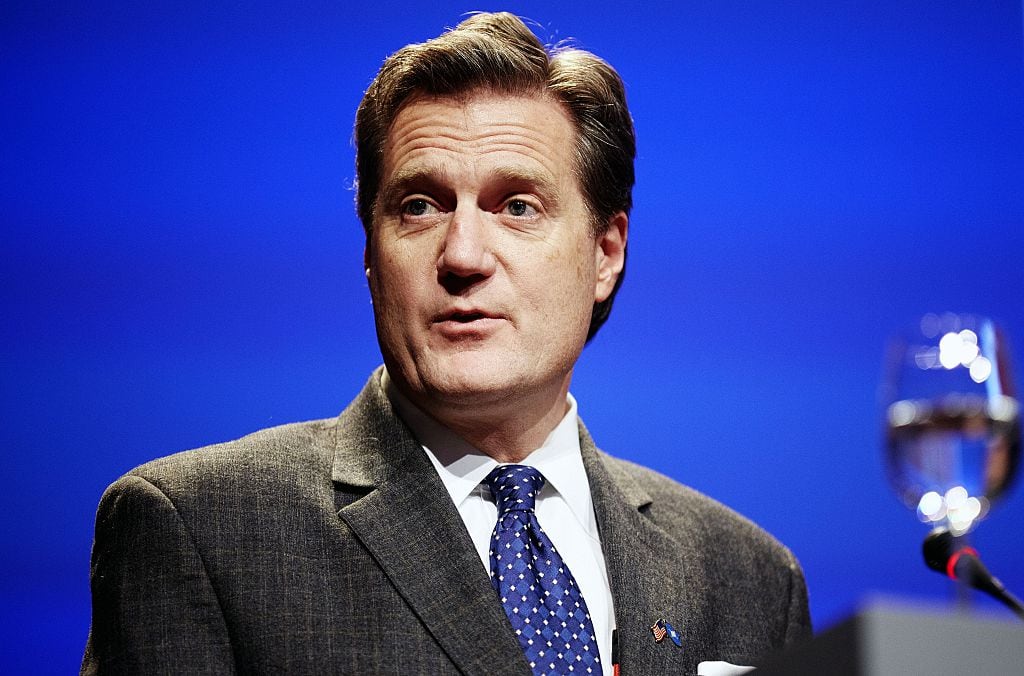BRUSSELS — U.S. President Donald Trump declared a personal victory at the NATO summit this week, but his brash showing came at a price.
If there is one theme that emerged from the gathering here, it is that the task of appeasing an incalculable U.S. president has become something of a narrative unto itself. Less pronounced at the beginning of his presidency, when allies were still trying to figure him out, the art of telling Trump a good story that makes him look good has now become a strategic tool for dealing with Washington.
Take, for example, the issue of defense spending among NATO allies. Many Europeans still lag behind the goal of spending 2 percent of gross domestic product on defense by 2024. Thanks to Trump’s pressure — and this is a true story — they rushed to pledge more long before the summit even began.
But Trump’s claim at the end of the gathering that allies had agreed to spend yet more was the product of some truth-bending behind the scenes. Whatever allies told him in a frantic emergency meeting, it prompted Trump to call a Thursday news conference praising himself for having just extracted fresh concessions from them.
Click here for in-depth analysis and interviews from NATO’s summit in Brussels!
NATO Secretary General Jens Stoltenberg quickly followed with a news conference of his own in which he went to great lengths to avoid having to say that no new spending schemes had in fact been agreed.
For those who still had doubts at that point, Rose Gottemoeller, an American diplomat and Stoltenberg's deputy, later in the day confirmed that the objective of 2 percent by 2024 remains in place for all members, as it had before the summit.
The drama overshadowed many of the summit’s decisions, including the approval of a new command structure, a new commitment to stabilizing Afghanistan, the start of accession talks with Macedonia and a new Canada-led NATO training mission in Iraq. In a show of unity, a customary joint declaration was approved by all members, including the United States.
It left some summit goers and analysts relieved that NATO had not actually imploded, as it seemed would be the case for a brief moment Thursday afternoon. For others, a bitter aftertaste remains.
“What a terrible consolation prize,” retired Lt. Gen. Ben Hodges, a former commander of U.S. Army forces in Europe, told Defense News. He criticized Trump for bringing a “wrecking ball” to the summit and for pursuing negotiations akin to a doctor “killing the patient first.”
Especially in the case of Germany, Trump should have pursued a more tactful approach given Berlin's status as an “essential” ally for the United States, Hodges argued.
RELATED

Christian Mölling, deputy director at the Berlin-based German Council on Foreign Relations, said Europe is practicing a form of “self-sedation” if leaders here think they can gloss over the differences in style and substance with Trump.
“The biggest problem for the alliance is not a lack of money or troops,” Mölling told Defense News. “NATO is merely the arena for a much bigger conflict about political order and world views between the U.S. government on the one side and many European governments and the European Union on the other.
“What is the role for democracy, rule of law and multilateralism for global peace? That conflict is likely to be fought with enormous intensity in the future, accelerating the drifting apart of the trans-Atlantic partners and, therefore, NATO.”
Tempers in Germany had already calmed by Thursday evening. German Defence Minister Ursula von der Leyen said in a German TV talk show that she was satisfied with the summit outcome and cautioned against getting too excited about the day’s drama.
In a way, the summit ended in the kind of scenario that had been readied for him beforehand: Convince Trump to take credit for defense-spending increases and hope that he doesn't bruise allies too badly in the process.
For better or for worse, America’s allies have figured out that the key to dealing with this U.S. president is serving him a good story that makes him look good. The problem is adversaries know this, too.
Sebastian Sprenger is associate editor for Europe at Defense News, reporting on the state of the defense market in the region, and on U.S.-Europe cooperation and multi-national investments in defense and global security. Previously he served as managing editor for Defense News. He is based in Cologne, Germany.







